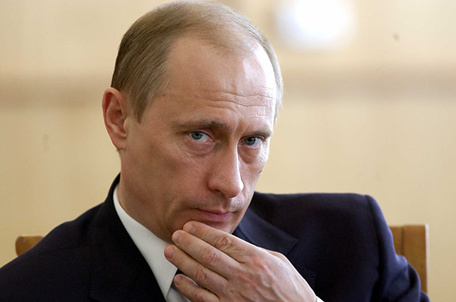Tehran: Putin’s Card to Challenge the West

According to a report by Swissinfo news, the Israelis are still however pessimistic with regard to a solution to Iran’s nuclear dossier or the end of the Syrian crisis, and they state that even Putin's visits to certain countries will not be able to untie the knot in the existing problems. An Israeli official, who asked to remain anonymous, says,”I don't expect any progress, even a single millimeter, in negotiations with Iran or Syria, because we know both Russia and Western society well. Neither side is willing to listen to each other and reach an agreement over these issues."
He considers Russian and Western strategies efforts to neutralize the other side's plans and states that both sides will use all their energy to prevent the success of one another.
Besides the US, China, Britain, France, and Germany, Russia is also among countries negotiating with Iran over its nuclear program. With no evidence, the West accuses Iran of seeking to achieve nuclear weapons through the development of its nuclear program, while Iran strongly rejects such accusations and has always stated that it follows peaceful objectives in its nuclear program.
Compared to Western countries, Russia has always taken a soft and moderate position with regard to Iran. It has always opposed the West's unilateral sanctions against Iran and has warned, and even threatened, Israel against any military attack on Iran.
Putin has, several times, announced that there is no evidence that Tehran is seeking nuclear weapons. Analysts believe that Putin's belief in this regard has given him an excuse to challenge US influence in the region and constantly oppose Washington’s policies.
In this regard, Georgy Mirsky, a Middle East expert at Moscow’s Institute of World Economy and International Relations, states, "Some believe that Russia prefers a nuclear Iran. They believe that the existence of a nuclear Iran is better than an Iran that supports the US; hence, it prefers a powerful Iran to exist in the region to be able to stand against the power and pressure of the US and create balance in the region. "
Regarding the Middle East peace plan, many refer to Putin's trip to Israel. In 2005, and in an unprecedented move, Putin ignored Arab alliance with Moscow and visited Israel. At that time, he also visited the West Bank and Egypt. This trip angered the leaders of Arab countries who had enmity with Israel. During the Soviet era, Russia had no relations with Israel and, alongside Arab countries, opposed its policies. But ever since Putin entered the Middle East peace crisis with his trip to Israel, he has offered no plan to end the Arab-Israeli conflict. Therefore, Putin's efforts to present a new plan in this regard can be the start of new activity in Moscow, even though analysts believe that, due to the existing mistrust and competitiveness between Russia and the West, especially the US, his plan will not succeed.
Furthermore, Mirsky goes on to say, "Right now, Putin feels that Russia needs a new presence in the Middle East. He believes that if Russia is kept away from the issues of the Middle East, it will pay a heavy price in its foreign policy. That is why it defends Iran’s nuclear program and stands by Assad in challenging Syria's domestic problems, even if deep down it does agree with some positions of the West."

